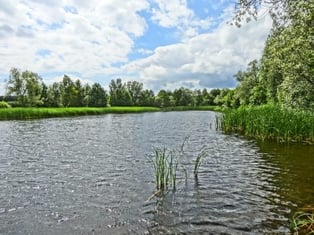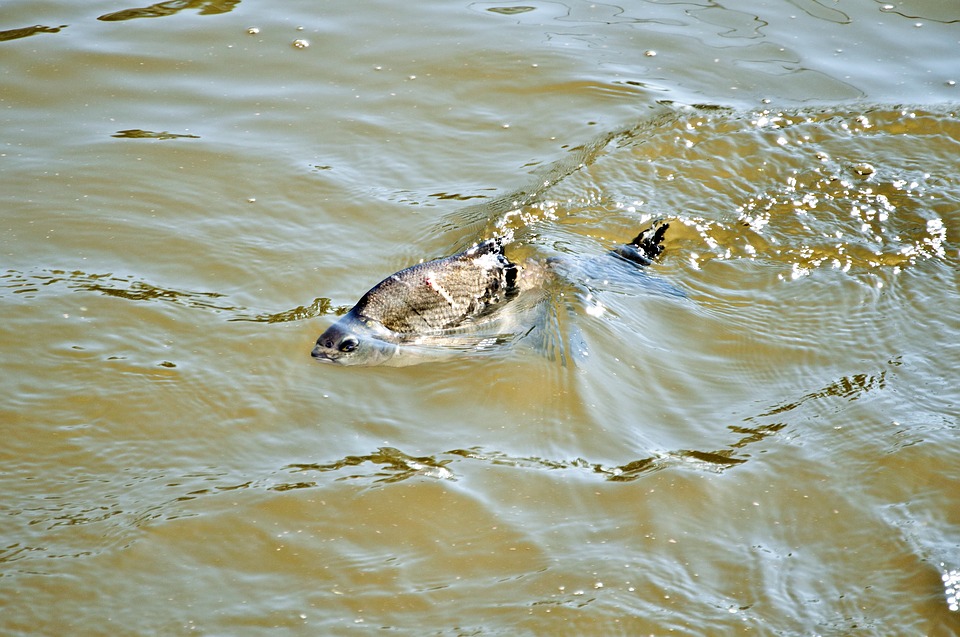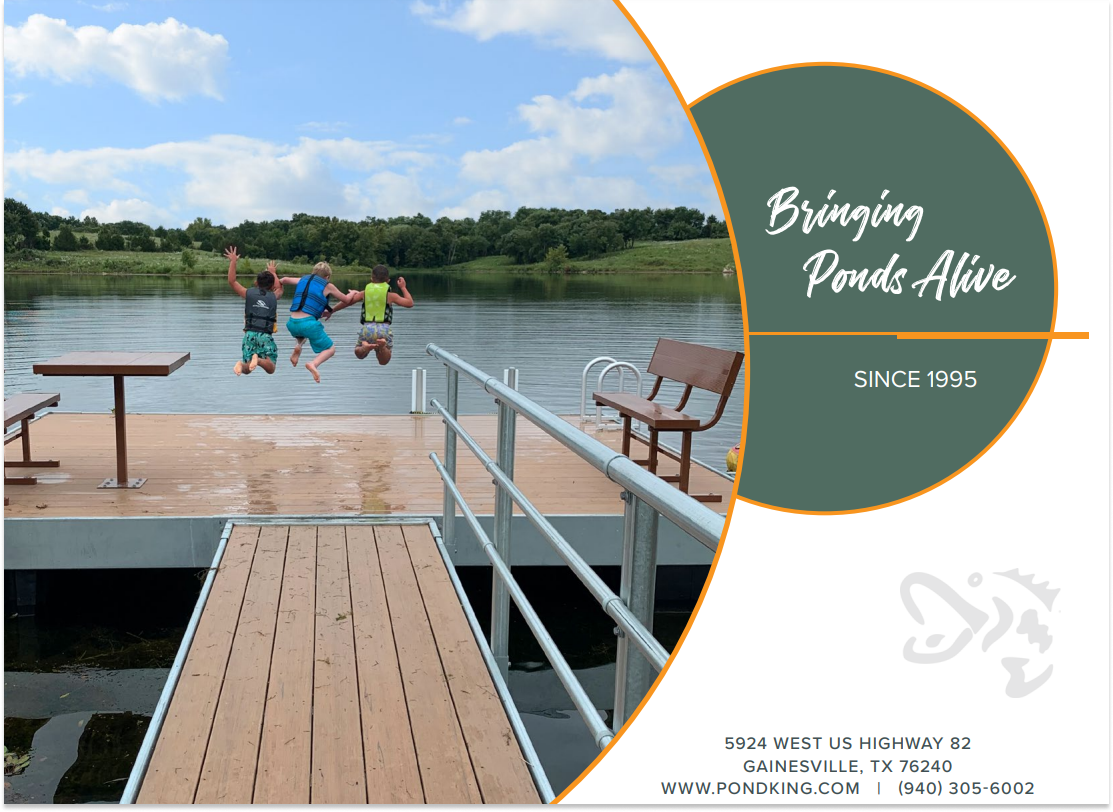The wind's effect on your pond can be good and bad. The wind can be beneficial to pond owners because it adds oxygen to water, but it can also cause pond degradation.
The wind can be a blessing for your pond
The wind's effect on your pond can be a blessing, especially during hot Texas summers. As the wind pushes waves across the surface of the water, they will collide with each other or build up enough energy to eventually roll over. This causes the water to trap a small amount of air and mix it with the surface water, increasing the dissolved oxygen concentration in the pond.
In the middle of the summer it can be a blessing by way of adding extra oxygen to your pond when it would typically have a lower concentration due to heat.
When is the wind a problem?
Wind is a problem for your pond if your shoreline doesn't have much in the way of soil stabilization. In this case, excessive waves along the bank can cause erosion issues. Having vegetation all the way to the water’s edge is the best defense against loosing landscape features. It will also help prevent large cuts and washout along the banks of your pond. Create small, isolated pockets of submerged or emergent vegetation. Plants that spread via rhizomes and have vast root systems such as Bermuda grass are excellent soil stabilization and erosion prevention for pond banks. You can find other vegetation recommendations on our website.

Wind action on small ponds that are relatively shallow can be problematic because it can lead to turbidity issues. Turbidity can be caused by an excess mixing action caused by wind. This bringing solids from the pond floor back into suspension. These suspended solids can cause the clarity to drop and potentially harm fish, depending on the length of time it takes for the solids to settle. Submerged vegetation will help alleviate turbidity because it acts to dissipate the energy of the waves along with binding together soil substrate.
Wind can also cause localized oxygen depletion.
The wind can also push floating and suspended aquatic vegetation to concentrated areas downwind in your pond. Planktonic algae that is suspended and filamentous algae that is no longer connected to the pond floor can drift and become concentrated in areas of the pond. This can lead to oxygen depleted dead spots, entrapping fish and fouling of drains or spill ways.
Maintain your pond to minimize the wind's effect.
Proper construction and maintenance is key to preventing the potential negative effects that winds can have on your pond. If you are building a new pond, construct it with a moderately fast slope. Also, make it as deep as you can.
Allow aquatic vegetation to grow in small isolated patches especially on the downwind side of the prevailing winds for your region. Keep the vegetation and grass around the bank of your pond manicured. This will promote the spread of vegetation and improve soil stabilization. For any other questions the wind's effects on your pond, give us a call or send an email to garrett@pondking.com.



